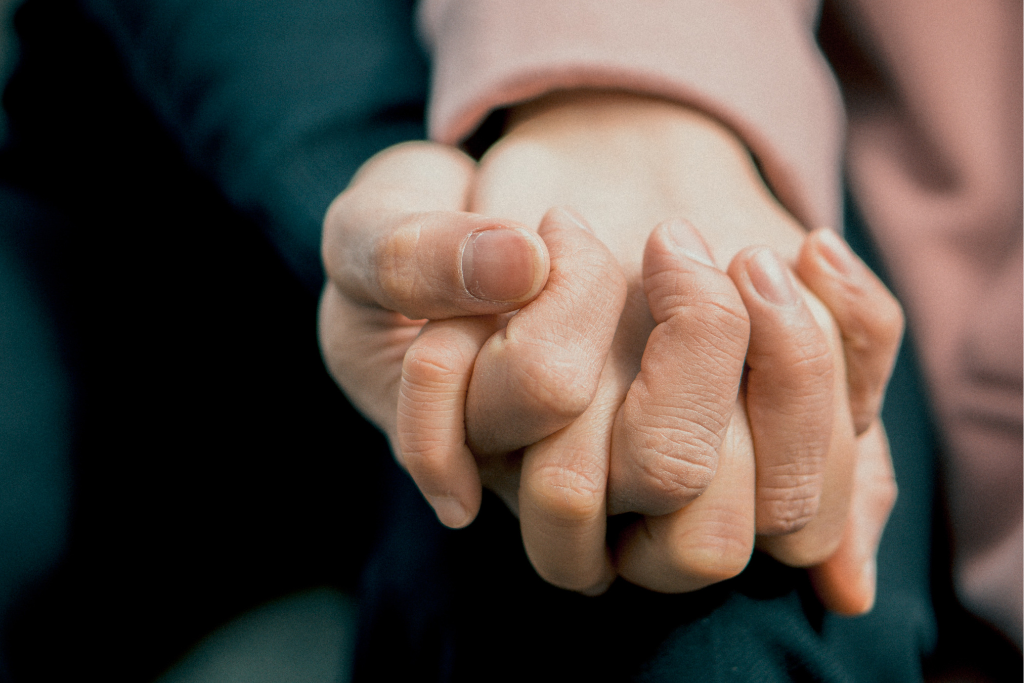Therapy is an integral part of an addiction rehab process.
You’ve probably heard of an endless list of therapies, and there’s a good chance you’ve heard of Cognitive Behavioural Therapy, otherwise known as CBT. But what exactly is Cognitive Behavioural Therapy and what does it entail?
in this article, we’ll take a deep dive into CBT, discuss the types of CBT and why you should consider it as part of your therapy program.

What is Cognitive Behavioural Therapy?
Cognitive Behavioural Therapy (CBT) is a type of psychotherapy that aims to help people change negative or harmful patterns of thinking, feeling, and behaving. It is often used as a form of addiction counselling to help people struggling with various forms of addiction overcome their addiction.
It is a widely used and effective form of psychological therapy that can help people with a range of mental health conditions, including anxiety, depression, addiction, bipolar disorder, and obsessive-compulsive disorder, among others.
CBT focuses on the present moment and is a short-term treatment that usually involves between 5-20 individual sessions. Through a series of therapeutic approaches, including relaxation techniques, active participation, and commitment therapy, CBT empowers people to identify and challenge unhelpful behaviours and develop more positive patterns of thinking to improve their quality of life and physical health.
The History of Cognitive Behavioural Therapy
CBT originated in the 1960s as a combination of behavioural therapy and cognitive therapy.
One of the earliest and most influential figures in the development of CBT was Aaron Beck. He introduced the concept of automatic thoughts, which are unconscious and automatic negative thoughts that can contribute to emotional distress. Later on, Albert Ellis introduced Rational Emotive Behaviour Therapy (REBT), a form of CBT that emphasises the importance of irrational beliefs in causing psychological problems.
Over time, CBT has continued to evolve and incorporate new therapeutic approaches, such as Acceptance and Commitment Therapy (ACT) and Mindfulness-Based Cognitive Therapy (MBCT). Today, CBT is widely recognised as an effective treatment option for various mental health conditions, including addiction.
It has helped individuals improve their quality of life, manage their symptoms, and become active participants in their own mental health care.

Why use Cognitive Behavioural Therapy?
CBT can help improve your quality of life, increase your understanding of your emotions, and enhance your ability to manage psychological issues through the use of therapeutic approaches such as relaxation techniques and commitment therapy. Let’s dive into some of these now.
Goals of CBT
The goals of CBT include identifying negative thinking and behaviour patterns, learning new, productive coping mechanisms, and developing interpersonal skills.
During CBT sessions, patients are taught to identify and challenge negative and unhelpful beliefs and behaviours, such as anxiety or depression. By doing so, they can form new habits that promote positive thinking and behaviour.
On top of that, patients in CBT receive guidance on how to develop productive coping mechanisms through the use of relaxation techniques and other skills, such as positive self-talk. They also learn how to improve communication, assertiveness, and active listening skills, which can be applied in their daily lives and improve their interpersonal relationships.
CBT can also help patients develop a more balanced outlook on life. This is achieved by teaching them how to recognise and challenge cognitive distortions, which are negative or irrational beliefs that create emotional distress.
Overall, CBT aims to help individuals achieve greater psychological well-being by providing them with the tools and techniques necessary to achieve their goals and lead a more fulfilling life.
Benefits of CBT
The key benefits of CBT are its short-term duration, flexible format, and ability to deliver long-term results. Unlike other forms of psychotherapy, CBT is typically completed in a relatively short period of time, which makes it a popular choice among patients with busy schedules. The flexible format allows patients to undergo therapy in various settings and at different times, which improves the likelihood of treatment adherence.
CBT is also an effective alternative to medication as it helps to address underlying causes of mental health conditions by helping patients develop more positive thought patterns and behaviours. Through CBT therapy sessions, patients learn to become active participants in their care, identifying and changing unhelpful behaviours and negative thinking.

Techniques Used in CBT
Cognitive Behavioural Therapy (CBT) is a form of psychotherapy that is used to treat a wide range of mental health conditions, from anxiety to depression. CBT is based on the understanding that patterns of thinking and behaviour can have a significant impact on our mental health. There are several techniques used in CBT that aim to help individuals identify and modify unhelpful thoughts and behaviours.
Behavioural activation
Behavioural activation involves identifying and engaging in activities that bring a sense of pleasure or achievement. The technique aims to improve mood and motivation by increasing levels of positive reinforcement.
Exposure therapy
Exposure therapy is also commonly used in CBT and involves gradually exposing individuals to situations or objects that they fear in a controlled environment. The aim is to help individuals overcome their fears and reduce anxiety levels.
Thought Records
Finally, thought records involve identifying and challenging negative thoughts. This technique is used to help individuals reframe their thoughts in a more positive way, leading to a change in behaviour.
By using these techniques, CBT aims to empower individuals to become active participants in their own recovery.
Types of Cognitive Behavioural Therapy
There are various types of cognitive-behavioural therapy approaches, each with its own unique focus and techniques. Let’s go into detail about the different types of CBT and discuss how they can be used to help individuals improve their quality of life.

Dialectical Behaviour Therapy (DBT)
Dialectical Behaviour Therapy (DBT) is a form of psychotherapy that primarily focuses on addressing emotional dysregulation. It consists of seven interconnected modalities that include mindfulness skills, emotion regulation skills, distress tolerance skills, interpersonal effectiveness skills, walking the middle path, dialectical abstinence, and dialectical dilemmas. These modalities are aimed at helping individuals develop healthy emotional regulation skills, improve their relationships, and find a balance in life.
DBT can benefit individuals with addiction, borderline personality disorder, suicidal ideation, and self-harm behaviours. By learning to regulate their emotions, individuals can effectively cope with difficult situations and emotions that may otherwise lead to self-destructive behaviours. DBT teaches individuals ways to identify, label, and cope with challenging emotions, ultimately increasing their ability to tolerate emotional distress and reducing the urge to engage in destructive behaviours.
Rational Emotive Behaviour Therapy (REBT)
Rational Emotive Behaviour Therapy (REBT) is a type of Cognitive Behavioural Therapy (CBT) that helps individuals change their negative thought patterns and replace them with positive ones. As mentioned earlier, REBT was developed by psychologist Albert Ellis and is based on the idea that it is not the events in life that cause distress, but rather our beliefs about those events.
REBT involves identifying irrational beliefs and disputing them with logical reasoning and evidence. The ABC model is a key technique used in REBT:
- A – Activating event
- B – Belief
- C – Consequence
The therapist works with the individual to identify their negative belief (B) in response to a specific triggering event (A), and then support them in creating a positive consequence (C) by disputing the belief.
Disputing beliefs is another technique used in REBT. Individuals are encouraged to examine the evidence for and against their negative beliefs and to use logical reasoning to challenge them.
Homework assignments are often given as part of REBT. The individual is asked to practice disputing their negative beliefs in everyday situations. By challenging and replacing negative beliefs with positive ones, individuals are able to improve their quality of life and manage mental health conditions such as anxiety disorders, depressive disorders, and obsessive-compulsive disorders.
Acceptance and Commitment Therapy (ACT)
Acceptance and Commitment Therapy (ACT) incorporates mindfulness techniques with behavioural changes to help individuals manage their thoughts and emotions. Unlike traditional CBT, ACT focuses on accepting negative thoughts and emotions, instead of challenging them. It encourages individuals to embrace them in order to gain clarity and reduce the impact of negative thinking.
ACT also encourages the importance of committing to values-based actions. This means that individuals are encouraged to behave in a way that aligns with their deeply held values, even in the face of challenging situations. ACT helps individuals to identify what is most important to them and then helps them to build resilience and coping mechanisms to manage difficult emotions and thoughts.
Mindfulness-Based Cognitive Behavioural Therapy (MBCBT)
Mindfulness-Based Cognitive Behavioural Therapy (MBCBT) integrates mindfulness meditation practices. MBCBT incorporates mindfulness techniques to help individuals recognise and change unhelpful thought patterns. MBCBT is a short-term treatment that helps people improve their quality of life.
MBCBT aims to help individuals achieve improved mental health by enhancing their capacity to be in the present and non-judgmentally observe their thoughts and feelings. The therapy helps to cultivate greater self-awareness and acceptance, which in turn can help people break out of limiting thought patterns and achieve more positive outcomes. The techniques used in MBCBT are designed to develop an individual’s capacity for mindfulness, including mindful breathing, body scanning, and other mindfulness exercises.
By developing mindfulness skills, MBCBT enables people to improve their psychological well-being and has the potential to help people better manage their behavioural patterns and lead a better quality of life.
Cognitive Processing Therapy (CPT)
Cognitive Processing Therapy (CPT) is aimed at treating post-traumatic stress disorder (PTSD) and its related symptoms. CPT focuses on changing negative patterns of thoughts related to the traumatic event by helping individuals to identify and challenge them.
The techniques used in CPT include examining the negative thoughts, assessing how realistic they are, writing about the experiences, and discussing how beliefs have been impacted. Through these exercises, individuals can begin to understand their thought processes and gradually change their outlook.
Studies have shown that CPT is one of the most effective treatments for PTSD. In fact, it has been found to improve PTSD symptoms in over 60% of patients.
Overall, CPT is a valuable treatment option for individuals struggling with PTSD, whatever the trigger was. By focusing on changing negative thought patterns and addressing core beliefs, it can help improve daily life and overall quality of life.

How CBT can be applied to addiction
Cognitive Behavioural Therapy (CBT) is a form of psychotherapy that has been used effectively to treat addiction and substance use disorders. It is a short-term treatment approach that focuses on reframing maladaptive thoughts with healthier narratives and developing skills for relapse prevention to control the mind and manage high-risk cases.
Through the techniques listed above, CBT is an effective treatment to help people struggling with addiction to get a handle on their life. It is particularly helpful in addressing the thoughts, feelings, and behaviours that can contribute to addiction, helping individuals to identify and change the unhelpful beliefs that may have contributed to their substance use. Through therapy sessions, CBT helps individuals to learn new coping skills to manage daily life and improve their quality of life.
CBT is regularly used to treat various forms of addiction, including alcohol, cocaine, cannabis, prescription drug abuse, and many more. The therapy is particularly effective when used in combination with other treatments, such as medication-assisted therapy and support groups.
CBT is an active process, and individuals who participate in CBT are encouraged to be active participants in their treatment. By providing individuals with the tools and strategies they need to manage their addiction, CBT helps to reduce the risk of relapse and improve their overall well-being.
How to get help
If you or someone you know is struggling with addiction, CBT may be an effective treatment option. The first big leap anyone struggling with addiction needs to take is accepting they a problem and asking for help.
At Which Rehab, we’re here to guide you the stages of rehab, right from simply having someone to talk to. Our experienced team know how to get you or your loved one the right help for your situation, be that CBT or any other types of therapy or addiction treatment.
So get in touch today, it could be the life-changing step you’ve been needing to take.

CBT FAQs
The length of CBT treatment depends on the individual and their specific needs, but usually, it is structured as a short-term treatment that can last anywhere from 6-16 sessions.
CBT works by teaching people how to identify and challenge destructive thoughts and beliefs, as well as replace them with healthier ones. This can help reduce negative emotions and behaviours, leading to improved mental health.
Numerous studies have shown that CBT is an effective form of treatment for many mental health issues, with clinical outcomes often comparable to those seen in other forms of psychotherapy.
By getting in touch with our team, we can help you get the right treatment you need. CBT is one of the treatments regularly offered by the rehabs we work with. Get in touch today through our contact form, or call for free on 0800 170 7000.






